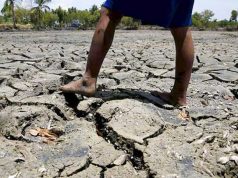Cruise line works on eco-friendliness
FLORIDA-BASED cruise line brand, Royal Carribbean Cruises Ltd. (RCL), has signed a five year global partnership with the World Wildlife Fund for Nature (WWF) as they try to ensure the “longterm health of the oceans,” said a company press release.
“This is not simple, we put a lot of work into it (environmental efforts), but there are people who are really at the cutting edge, with more knowledge, expertise… For us, teaming up with WWF gave us an opportunity to do something better than we can do on our own,” said Richard D. Fain, chairman and chief executive officer of RCL, during a press event recently held in Donsol, Sorsogon.
The partnership will be mapping out “measurable targets” that are meant to reduce RCL’s “environmental footprint, raise awareness about ocean conservation among the company’s more than five million guests, and support WWF’s global oceans conservation work,” said the press release.
“One of the targets is to focus on supply chain sustainability and emissions reductions through 2020. RCL and WWF also are working together to develop targets aimed at strengthening the company’s sustainable sourcing strategy and its destination stewardship and sustainability.”
RCL aims to reduce greenhouse gas emissions by 35% by 2020 and to “responsibly source 90% of its wild caught seafood by volume from MSC (Marine Stewardship Council)-certified sustainable fisheries, etc.” Its North American and European operations will source 75% of its seafood volume from the Aquaculture Stewardship Council (ASC)-certified farms and the like.
By the end of June, RCL is to set “specific traceability goals with targets for obtaining MSC and ASC chain of custody,” as well as announce new targets to address destination stewardship where both organization will collaborate “to strengthen RCL’s destination sustainability assessment and selection process,” said the press release
RCL will also be contributing $5 million to support WWF’s global ocean conservation work while building global awareness about ocean conservation among its passengers.
Aside from the $5 million, RCL also made a separate $200,000 donation to WWF Philippines in support of its conservation efforts in Donsol, home to a a “model, community-based ecotourism program.”
“We will contribute that ($200,000) not on short-term relief efforts but on long-term relief efforts… there’s no better way to utilize those funds than give it to the WWF so they could advance [their efforts],” said Mr. Fain. — Z.B. Chua




